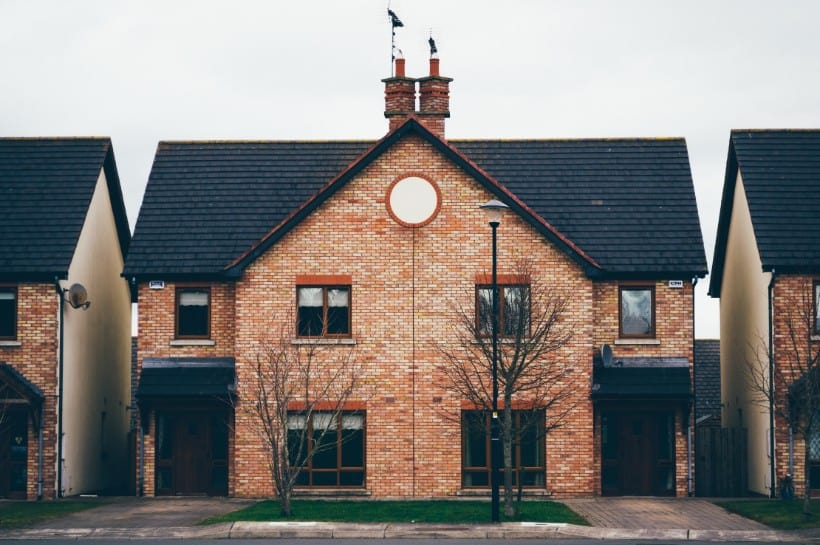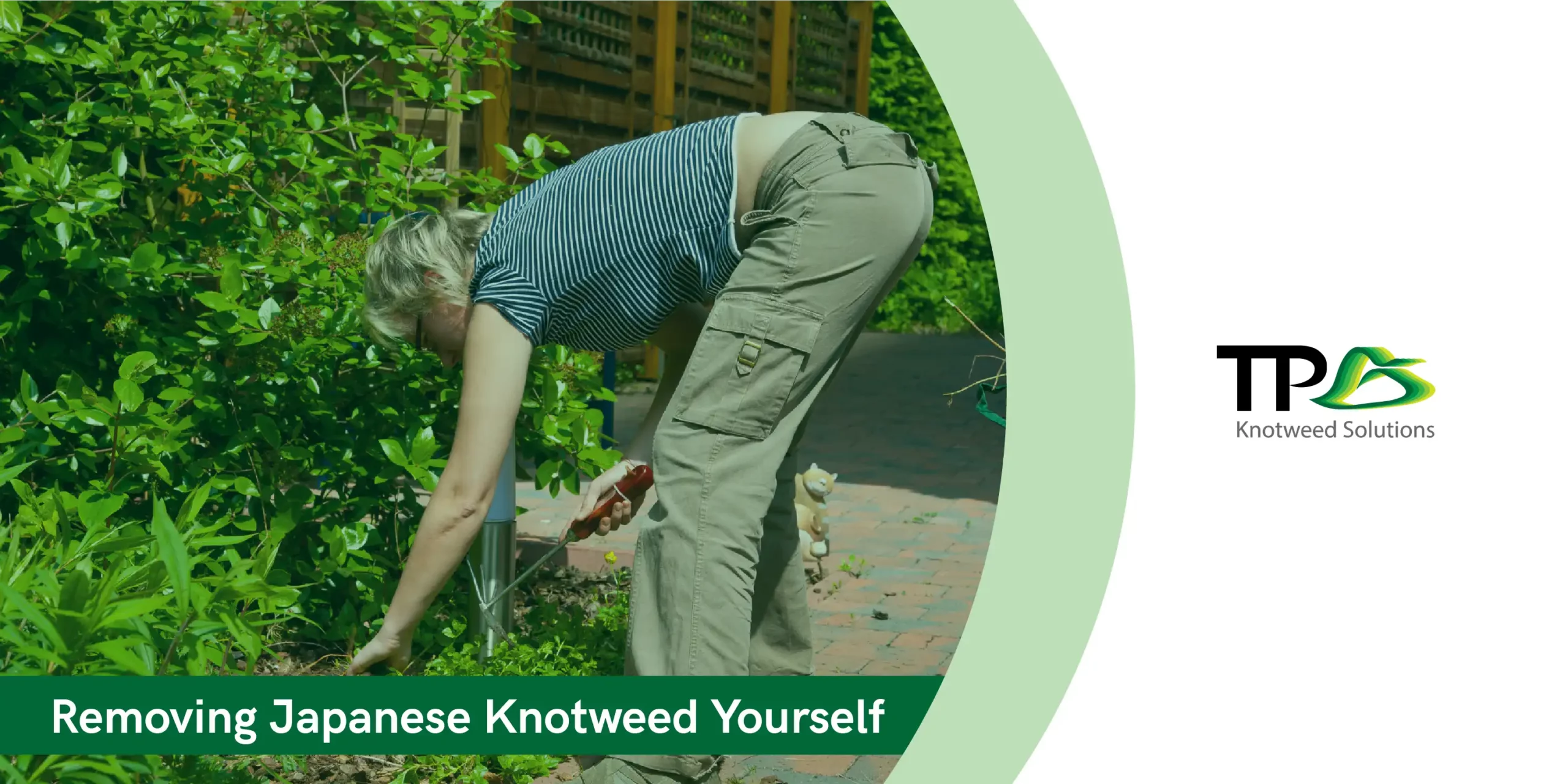Amidst the flurry of paperwork and packing when selling your house, weeds may be the last thing on your mind. But we recommend that you start considering them, because if the slightest trace of Japanese knotweed is found on your property – or even on your street – it could swiftly pull the plug on your plans.
It has been argued that Japanese knotweed poses no threat to your property or home. However, the reality is that it may pose a significant risk if you are trying to sell your house.
This is because it can be very difficult to remove and may also leave behind damage.
The question here is not so much whether Japanese knotweed poses a risk, but how do you manage this risk? It might be worth having an expert assess the state of your property before putting it up for sale.
The mere presence on any given land could bring difficulties during the housing market because buyers want nothing but pristine environments and properties not marred with weed infestation which would make their purchase less appealing in comparison (not only due its appearance).
If you are aware of Japanese knotweed on or near your property, if you do not take the appropriate action, it could result in your buyer pulling out of the sale or leading to your property diminishing in value.
How could Japanese knotweed affect my house sale?
As if it wasn’t hard enough selling property in the current market, if a hint of Japanese knotweed is found on your property it could cause a buyer to pull out immediately. Banks are also refusing mortgages if Japanese knotweed is found.
knotweed has been making headlines over the past few years, with a number of newspapers reporting on property plans scuppered. One of the worst cases was reported two years ago in The Daily Mail, when a couple had their £300,000 new build property’s value drop by more than half, after knotweed was discovered to have spread from nearby land and invaded the property through the walls and flooring.
How can I reduce the effect of knotweed?
If you are considering selling your house house, we recommend getting a thorough survey of the property early on in proceedings, to avoid any nasty surprises later on. At TP knotweed, we offer a free Japanese knotweed photo identification service, mortgage-compliant surveys, and comprehensive, guaranteed Japanese knotweed remediation, giving you complete peace of mind.
The main thing to ensure is that you are clear with whether your house is affected by knotweed or not. Reporting Japanese knotweed can save you from costly legal battles further down the line, if you were aware of your Japanese knotweed infestation, but have not declared this on the Seller’s Property Information Form (TA6).
You as the seller must complete this form and answer the question relating to whether the the property is affected by Japanese knotweed.
If this is the case and you answer yes, in many cases a Japanese knotweed removal plan is needed to be in place to allow the buyer to obtain a mortgage.
Japanese knotweed removal plan
If a Japanese knotweed treatment programme is not already in place, it can cause complications especially if it leads to the chain being held up. However, we can be on site within 24 hours to conduct a survey to determine the extent of your knotweed problem and provide a quote for a treatment plan to satisfy lending requirements.
Typically, a conveyancing solicitor will ask you to complete a TA6 Property Information Form. This is an extensive form that asks questions about your property and how it has been used over the years. The completed document can be sent off for signature by both parties’ solicitors so they are legally bound when signing this contract which forms key evidence in later court cases should disputes arise between buyer/seller.
It’s important that you are honest on the TA6 form, as selecting ‘No’, knowing you have Japanese knotweed, or do not disclose this, you could be in danger of future legal action by misinforming the buyer
How should I prepare my property for the sale?
To prevent knotweed from jeopardizing your sale, you can take a number of steps:
You do not need to comply with any legal requirements.
Owners or occupiers of sites with Japanese knotweed are responsible for managing it.
As of now, there is no statutory requirement to remove, destroy or report the presence of this non-native species under The Weeds Act 1959.
If you are selling to a cash buyer, you can simply sell the property as-is. Depending on the estimated treatment and removal costs, the asking price may be adjusted accordingly.
However, given that Japanese knotweed is such an invasive and damaging plant, ignoring it will only make it worse. To prevent the rapid spread of this invasive plant, it is recommended to take prompt actions to control the spread of the plant.
A large number of mortgage lenders will not lend money on a property affected by knotweed or with knotweed surrounding the property without a specific treatment plan in place.
As an example, HSBC requires any property with Japanese knotweed within the boundary or on neighbouring land within 3 metres of the habitable space to have:
- A fully paid up treatment plan which has commenced with an appropriately qualified person or company such as an accredited member of an industry recognised trade association such as the Property Care Association and the Invasive Non-Native Specialists Association
- A minimum 10-year Insurance-Backed Guarantee can be provided on completion of the works
What can be a better approach to this situation?
When you get rid of Japanese knotweed, the last thing you want is it to come back, especially since mortgage lenders don’t look favorably upon properties with a history of knotweed. We are here to help!
All work undertaken by TP knotweed includes a 10-Year Insurance Backed Guarantee in line with industry standards (specifically for Japanese knotweed). This provides our clients with the confidence that works have been carried out by an accredited specialist Japanese knotweed contractor and should any invasive plant re-growth occur following remediation, it is covered by our robust guarantee.
For more information about our Japanese knotweed identification, control and removal services, please call 0800 389 1911 or contact us online and one of our friendly, professional team will be happy to help.




